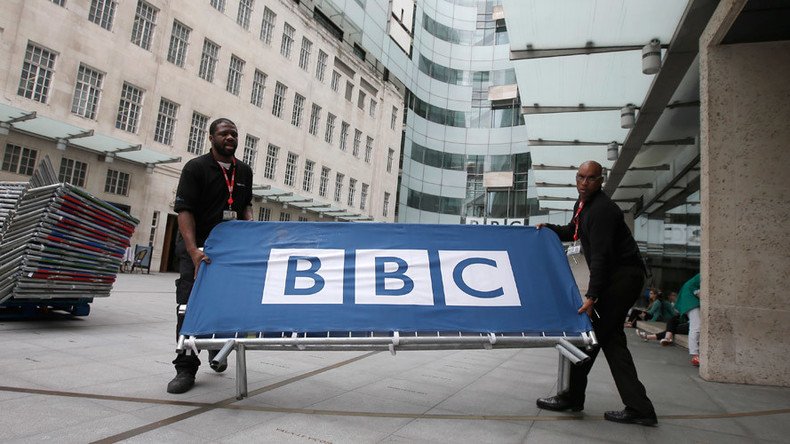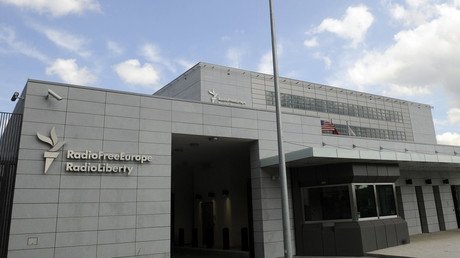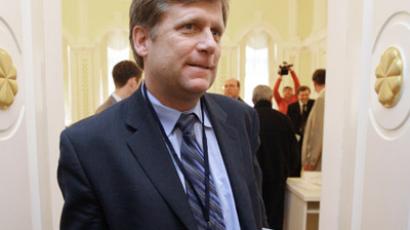On BBC fear mongering & Russia’s unproven guilt

According to the BBC, a hybrid war by definition can’t be proven. This gives the network, and all who treat it as a beacon of authority and impartiality on news, a blank check to accuse Russia of literally anything without a grain of evidence.
Some years ago, RT’s editor-in-chief, Margarita Simonyan, was quoted by Germany’s Der Spiegel as saying: “There is no objectivity - only approximations of the truth by as many different voices as possible.” Simonyan was making a point about Western media’s coverage of Georgia during the brief 2008 conflict and responding to accusations of bias on Syria.
The RT chief was widely taken to task for her assertion, even if she was only stating the obvious. It’s perfectly clear that in a conflict involving Russia, a Russian broadcaster will present a Russian interpretation of events – in the same way that American and British media saw the Iraq war from the perspective of their own forces and interests. For obvious reasons, the likes of the BBC, CNN and ITV didn’t have reporters “embedded” with Iraqi forces. However, they had plenty of them inside British and American battalions.
Often, when RT gives airtime and column inches to perspectives outside the mainstream, it is accused of “one-sided propaganda,” “weaponizing information,” launching “hybrid war” and numerous other indictments. One of RT’s biggest critics is the BBC, Britain’s own state-funded broadcaster, which is delighted to give plenty of space to RT bashers.
The one-eyed man is king
In a recent report, the BBC’s Tim Whewell asked: “Is Vladimir Putin really trying to break up the EU?” The premise was ripe for a truly insightful and fascinating analysis if it had included a range of opinions. Or just a couple of different takes. However, Whewell only allows one voice, on the three-minute clip: that of Anne Applebaum, a lobbyist for the CEPA and Legatum policy advisories, who occasionally moonlights as a journalist.
Applebaum, whose work is funded by American defense contractors, the US Department of Defense and a New Zealand investor with a murky history in Russia, has been a prominent anti-Russia activist for years.
Asking Applebaum, who has built a lucrative career from opposing Moscow, to evaluate Russian policy is akin to seeking Jeremy Corbyn’s opinions on Margaret Thatcher. You know exactly what you’re going to get. The BBC surely knows this.
To make matters worse, it attributes her to the academic-sounding “Legatum Institute,” without outlining the lobby group’s objectives or backing.
Applebaum’s “expert opinion” also fully echoes Whewell’s own fear-mongering narration, which amounts to: “The Russians are coming to get you.”
Reality according to the BBC
The video report insists that the West couldn’t possibly implement anything akin to alleged Russian actions in Europe inside Russia, to balance the so-called info war. This is simply absurd because the BBC, Germany’s Deutsche Welle and America’s RFE/RL all currently have Russian-language messaging services available in Russia. Then there are Western social media trolls, sorry, “Facebook warriors,” who enjoy uninhibited entry to Russian social networks.
Let’s dig a little deeper on the information front.
RFE/RL boasts that its Radio Svoboda "is the leading international broadcaster in Russia," and celebrates its social media success and reach on its own home page. Currently, the US state-funded broadcaster is planning to magnify its presence in Russian regions. Among its new programs will be documentaries, analytical TV spots, interviews and 'humorous' shows. They also air "Current Time," a collaboration between RFE/RL and the Voice Of America, which offers pro-Washington messaging to Russian speakers.
In addition, RFE/RL owns the Interpreter, a blog that doesn’t even try to veil its anti-Russia stance. It is headed by a lobbyist for NATO's Atlantic Council appendage. The Interpreter is also a useful tool for throwing mud at genuine Western Russia experts, who are often conciliatory to the country, thus handicapping them in impacting public opinion.
The US embassy in Lithuania is busy sponsoring "education in journalism" programs in Russophone areas, added to RFE/RL's similar, Prague-based scheme. It's also important not to forget 'Meduza," a Riga-based, Russian-language breaking news and opinion website, which refuses to reveal its funding sources.
History Rewritten
Then, of course, there is a decades-long history of Western interference in Russian public life.
Back in 1996, Time Magazine loudly proclaimed that Americans helped Boris Yeltsin ‘win’ that year’s controversial vote.
In 2009, President Obama met unelected Russian opposition activists in Moscow, in a move that amounted to demonstrative interference in Russia’s domestic politics. Just imagine the reaction if his then Russian counterpart, Dmitry Medvedev, had hung out with “Occupy Wall Street” protestors in New York? Would that not be widely seen as an endorsement of a particular constituency?
This link leads to a list of Russian organizations that were funded by the CIA in 2009. They range from the "Agency of Social Information" to the "Support Fund for Freedom of Information initiative" to "Lawyers for Civil Society".
There are numerous Western think tanks (often indistinguishable from lobby groups) that focus on Russia. For instance, this weekend, there is a conference taking place in Washington, featuring a variety of Russian exiles and also some Ukrainians and Americans. It is dedicated to removing, sorry, reforming Russia’s political system. Foreigners on foreign soil working out ways to more effectively interfere in Russia? Of course, according to the BBC, things like this simply do not exist.
What a cornucopia! Yet Applebaum still claims that the West hasn't been able to use "soft power" in Russia.
Carte Blanche
Although every news outlet is prone to reflecting its point-of-origin outlook, when it comes to Russia coverage the extent to which the BBC likes to stoke fears of the Big Bad Russian threat still sometimes manages to surprise. This latest video, however, really cranks up the anti-Russia hysteria by making Europe’s favorite boogieman not just large and powerful, but invisible and unstoppable.
You see, occasionally, bad things happen in Europe. Floods of immigrants, cyber-attacks, the rise of political groups unfriendly to Brussels. Sometimes there isn’t a clear guilty party because a variety of factors influence the drift. At other times the perpetrator is entirely unknown. An unseen dark force only adds to paranoia. But worry no more, because the BBC’s got you covered: just blame it all on Russia, even if there’s no proof!
Cyber-attacks on Estonia, Germany and Bulgaria blamed on Russia? There is no proof that Russian has ever launched these assaults on foreign states, but America's penchant for cyber-attacks on Iran, for one, has been well documented. How do we know there’s no proof that the Russians did it? Because the BBC video says so!
Political parties in Hungary and Germany taking Kremlin cash? Well, there’s no actual evidence, says the BBC. But sure, let’s add that to the compilation video of “things we can’t prove Russia does but are solid proof that Russia is destroying Europe!” Compare this to America's funding of Romania, where it has just opened a shiny new missile base, which is documented on its own embassy's website.
“No comparison” indeed.
The BBC video concludes with an ominous-sounding statement: “If they can’t prove that Putin is waging [hybrid war], it’s because, by definition, hybrid war can’t be proven.” It’s unclear who granted the BBC the power to redefine words and concepts such as “hybrid war,” as the term is widely accepted to mean simply a mix of different types of warfare. While Whewell says the words with aplomb and don’t-you-dare-question-it authority, the definition is negated by discussion earlier in the piece of a bank loan to a French party as evidence of Russia’s nefarious activities.
However, word games aside, Whewell’s pronouncement is indicative of a worrying new trend in the Western establishment’s approach to Russia. If you no longer need any evidence to assign guilt, there’s no limit to the guilt that can be assigned. This philosophy is effectively granting carte blanche to the “blame Russia” set.
The BBC message is loud and clear: the Russians are coming. The fact that we can’t prove it is in itself the proof. Be very afraid.
The statements, views and opinions expressed in this column are solely those of the author and do not necessarily represent those of RT.

















